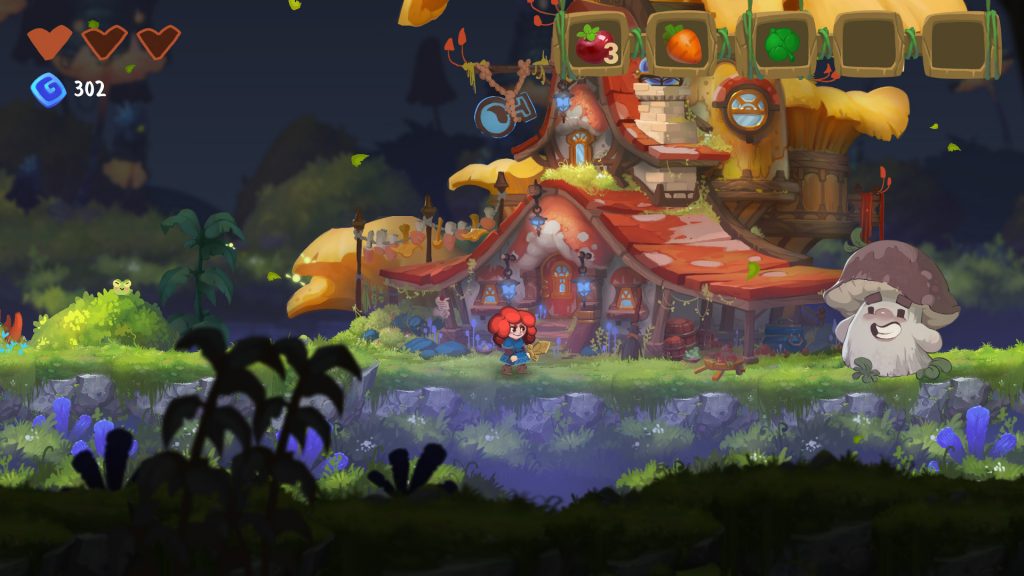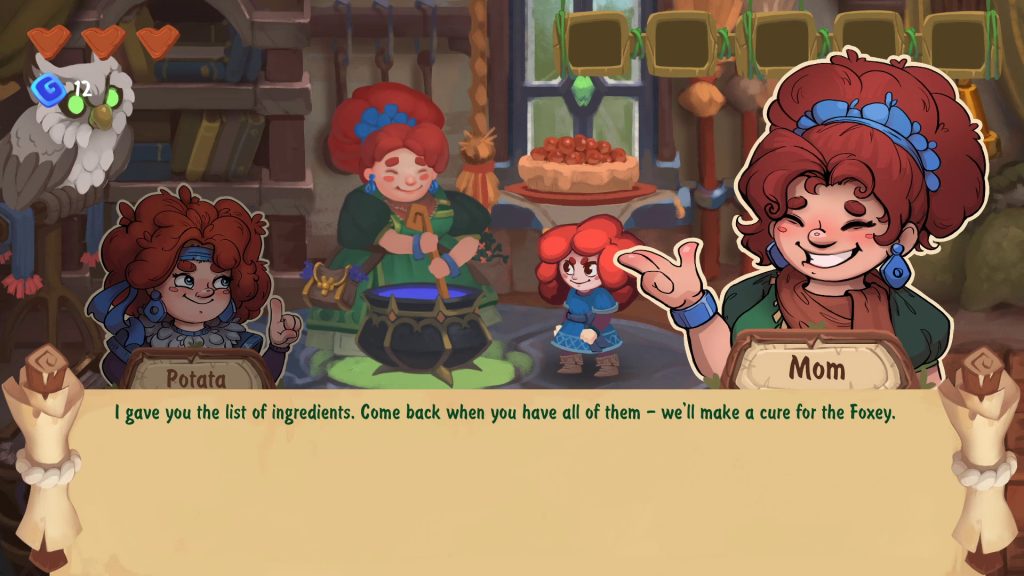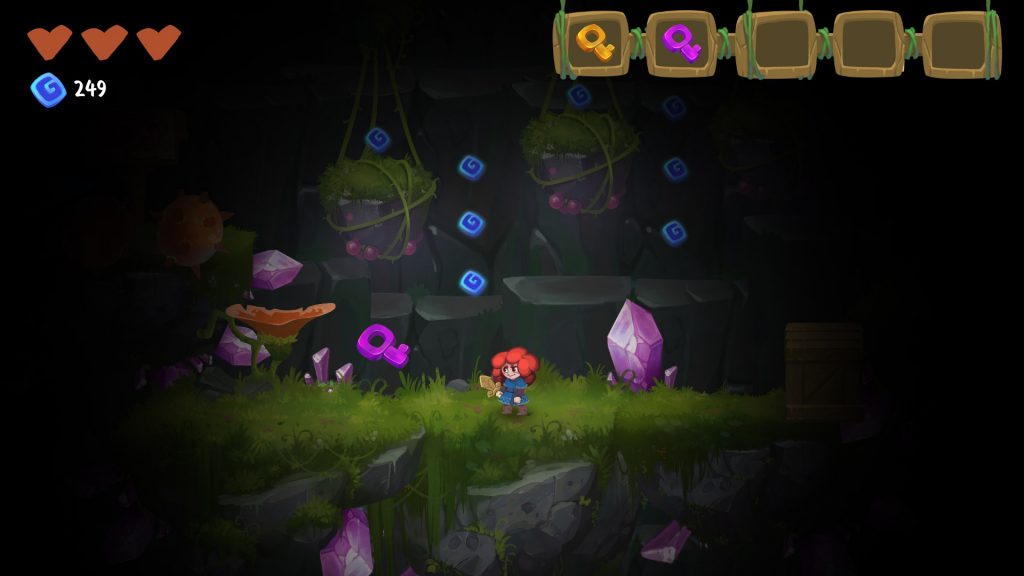REVIEW : Potata (PS4)
Potata: fairy flower feels very much like a play of yesteryear. This can vary from a genre-defining hit to a shoddy copy of better names, but sadly, Potata manages to feel like the latter.

It starts up fairly easy. You play as Potata, a fiery-haired budding witch residing in the Fairy Forest. Your young wolf is suffering and your mum is seeing for ingredients. You require some leaves for medicine and some berries for a pie. This is, for the largest part, how the narrative is set up. It isn’t complicated but doesn’t require to be for a puzzle platformer. It often wants to seem pretty and provide pleasant gameplay, yet it simply does this to differing degrees. Normally, talking to Potata’s mom brings one to the conversation, something that shocked me in a way that’s initially quite attractive. You have options of what to say and these get you different responses, comparable to an RPG dialogue system but far more clear. It also gives stage commands to certain choices such as “In an annoyed tone”, or it combines a wink after a sentence to imply a definite cheekiness.

This appends a certain appeal to an otherwise fairly boring introduction. Sadly, the conversation has obvious errors and very few figures have any real character. It squanders the magic imbued by a talk system by making it feel exhausting and slow to make your way through.
After this is concluded you are greeted to both the forest itself and the gameplay structure. In the woods, there’s a farmer, a mechanic, a “shady” mysterious picture and a few other personalities you won’t find for some time. After discovering out a little about them via their conversation, you are sent on your first level.

Levels in Potata are simple but more structured and enjoyable than they originally seem. There is seldom an A to B run, opting instead to go beneath and above the initial platform. You begin with nothing but a jump key and your wits if you would call them that. You must avoid foes and hop over platforms to get a general scope of the level. A significant part of closing stages is the mystery aspect so you are best off getting a vague idea of where everything is before bouncing wildly. This is one of the best stuff about Potata. Its level design does have some big moments. So too do its secrets. Nothing is too complicated or hard but they are usually quite satisfying. It’s smart too, and one puzzle found very beginning is used later to various effects.

Not every mystery and level design work this well, sadly. Many puzzles just require following a simple design right in front of you and none of them seems different to Potata. The same goes for the level design. It isn’t evil by any stretch but feels painfully formulaic for the majority of playtime. usually, the overall atmosphere of the level contrasts with its own choices. There are cliches of the genre often thrown into levels where they don’t quite fit. The gameplay itself is relatively decent but its animations are often very rigid and awkward, occasionally feeling like a mobile title. And then the land behind you and your character model often feel at ends, with clipping through environments and repetitive animations.
The same can be said for the art style. The cover and background art are occasionally lovely but this clashes hard with some particularly ugly character models and platforms. Going from one to the other feels like clicking on a 4K YouTube video only to have it load in 480p. And then the music is also inconsistent in quality; most of it being fairly menial background noise where some of it is downright annoying. The second level, on the other hand, features lovely quiet piano and pizzicato strings, and I could easily see myself listening to this track by itself.

There are also levels of complexity added as you go through Potata: fairy flower that I quite enjoyed. New mechanics are brought into the platforming elements, such as the inclusion of a sword and bomb-like objects you can throw. These add new ways of looking at levels, almost in the way a Metroidvania does. This isn’t the only place Potata draws from other genres though and it has an inventory system that occasionally feels like an old school point and clicks adventure.















